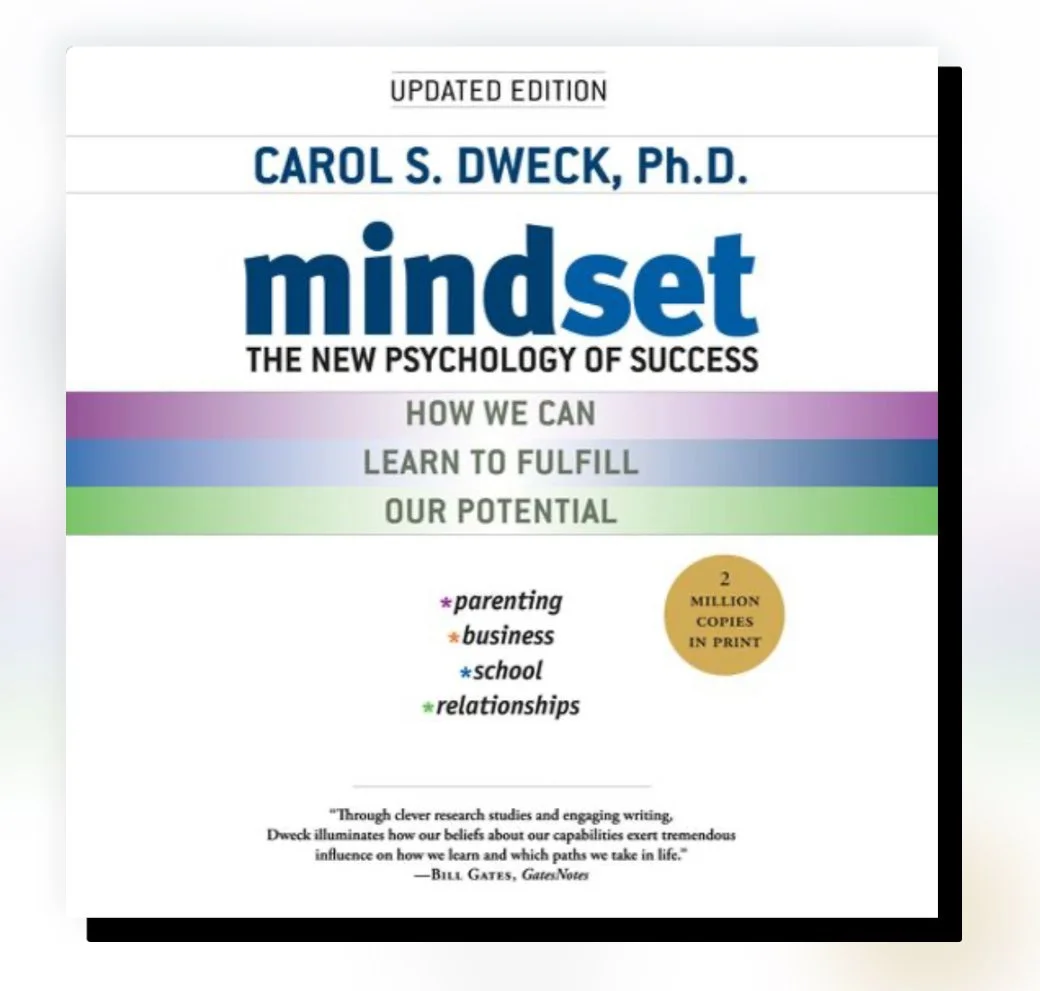Mindset: The New Psychology of Success. How We can Learn to Fulfill Our Potential (2019) Carol S. Dweck, Ph.D
Carol S. Dweck, Ph.D psychologist describes her theory about the impact of our mindset: a fixed mindset is a rigid belief that skillsets related to intelligence, talent, abilities, etc., are fixed; whereas a growth mindset is flexible, adaptable, and embraces effort in the development of abilities. The presentation of the material exemplifying the growth mindset appeared to mirror the ways Angela Duckworth describes her research on Grit, the qualities aligned with humility as described by Willink and Babin, and appear to require a neuroception of safety as described by Polyvagal Theory. The qualities of a fixed mindset appeared to mirror many of those associated with a history/experiences of trauma such as a decreased window of tolerance for distress, negative core beliefs, achievement-focused.
While I agree with the overall concepts of the theory, the narrative feels oversimplified and judgmental. But it appears with this new edition came a new addition: After hearing about an increase in folks with a “false growth mindset”, Dweck asked the question “did I make the change to the growth mindset too easy that people didn’t realize that a journey was required or didn’t know how to take the journey?” In a way that models the humility and accountability associated with the growth mindset, Dweck clarified in this new section the need to have compassion for those with a fixed mindset and identifying many factors that may contribute to the development of a fixed mindset (to include alluding to insecure attachment); as well as the nuanced and ongoing journey involving time, effort, and mutual support (co-regulation) one needs to engage in an effort to cultivate and sustain a growth mindset.
How did I hear about this book: Client recommendation
Would I recommend it to colleagues: Sure
Would I recommend this to clients: Yes, but make sure it’s this updated edition.
How do I apply this content to my work: Even though I found the book frustrating to read as a trauma therapist, I think the concrete and simplified concepts of the mindset could be a good read for clients. It could be a useful tool to objectively evaluate their pattern of thinking and their approach to learning, task completion, overcoming obstacles, or any other challenge that may have brought them to therapy. It could be a useful tool to open that door for deeper assessment or discussion in the therapy session of topics related to trauma, insecure attachment, lack of sense of safety, blocking or negative beliefs, etc. In combination with other treatment modalities for healing, we can also work (together via co-regulation) on cultivating a growth mindset as indicative (or parallel with) our other treatment goals.
If you are in the state of WA and think you could benefit from trauma therapy, please feel free to contact me to schedule a free 15-minute consultation to find out more.
Disclaimers: These reviews are based on my own personal experience reading these books and do not reflect on the book’s author or publisher. I have not received any commissions or other incentives to promote my reviews. My reviews express my own unbiased opinions.




